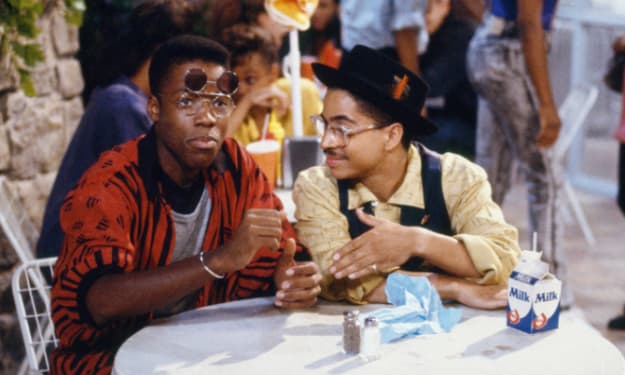Book Review: Full Dark, No Stars
Stephen King's 2010 collection impresses with bleak settings and unsettling themes.

Hello all, and welcome to the first of presumably many book reviews to come from yours truly. Before we get into the review proper, I'd like to give a little background information regarding why I'm reviewing a seven-year-old book. The long and the short of it is this; I've challenged myself this year to read 100 books, none of which I'm allowed to have read before. Yes, I'm on track, and yes, I really do enjoy it. But reading nine or more books a month has its downside—I've had to exhaust my bookshelf to find things I haven't read yet. So, more or less, that's what's brought me to this point (and a little further info—the bulk of my reviews will be of books I've read for this challenge, so many of the books reviewed here will fall into this "dated" category).
Stephen King's 2010 collection Full Dark, No Stars collects four novellas that eschew the supernatural horror style he is better known for, opting instead to terrify with a realistic style of horror. I'm not saying he's never used this style before (Dolores Claiborne, Misery, Joyland), but I would argue that we're far more used to supernatural or extraordinary themes in King's work (It, Carrie, Salem's Lot, The Stand, The Tommyknockers, The Dark Half, The Green Mile, Pet Sematary, Christine... you get it).In any case, this collection opts for a style that is bleak in its setting and unsettling in its realism, and that is its greatest achievement. Where much of King's canon spooks with monsters and haunted spaces, the most horrifying parts of this book come when the story takes us to the dark side of human nature. This book won't keep you awake wondering what's under your bed, but you'll certainly lie there for hours wondering, "Could I do something that heinous?"
The first novella in this collection, "1922," takes place in pre-Depression Nebraska on a struggling corn farm. When a wife's inheritance becomes a bone of contention in her marriage, the fights turn into emotional abuse and manipulation, vengeful plotting, and, eventually, murder. But our main character, a disgruntled husband, finds that his woes aren't so easy to bury as he might have anticipated, and his devious acts have effects he couldn't have possibly predicted. The great success of this story is in its ability to make you question your own actions and relationships. While I expect very few readers of this book can relate to being a poor farmer in the early 20th century, all of us can relate to having disagreements, arguments, and fights. We can all empathize with a sparring couple even if we can't empathize with the setting. As one reads the books, this empathy leads us to ask ourselves how far we might go in any given spat. What situations would lead us to consider killing those around us? Where would we draw the line and murder for our home? Many of us may think "NEVER!" but can we really say for sure?
The second novella in the collection is "Big Driver," an oddly uplifting story of vengeance following sexual assault. While rape is obviously a sensitive topic, and many would object to a man trying to write a rape from a female victim's perspective, I think that in this case, it works out. Of course, that's my opinion, but... if you're here I assume you're looking for my opinions. Whether or not one appreciates King taking it upon himself to try and communicate rape, the quality of the rest of the story is unquestionable. While the circumstances of the story are unlikely enough that we can mostly feel disconnected to the point of safety from the content, as we follow mystery author Tess on her quest for revenge, we nonetheless find ourselves as readers drawn bit by bit into her mindset. At times, one may find themselves screaming at the page as she does the most counterintuitive things to rebuild her mental state, we can't help but cheer her along, even as we see her descend into the darkest parts of the human mind.
Have you ever had a friend or peer that seemed to have all the luck, even if they didn't seem to really deserve it? How about this: Have you ever felt that the world is working against you, a mostly good person, while awful people seem to catch all the lucky breaks? If you answered 'yes' to either of these, you're already on the same page as Dave Streeter, main character of "A Fair Extension." While his best friend (who stole his high school crush—that bastard!) enjoys a successful career and a perfect home life with his beautiful wife and kids, Dave is slowly dying of cancer he can't afford to treat. At his lowest moment, Dave encounters George Elvid, a smooth-talking salesman that offers to get rid of his cancer, if Dave can offer something small in return; someone to give the cancer to. In a streak of brilliance, Dave sees his chance to kill two birds with one stone. The rest of the story shows us Dave's miracle recovery and sudden success as his "best friend" sees his own life crumble around him. It begs the question, "Would I wish cancer on my worst enemy?" How about, "Would I wish cancer on my best friend if it saved my own life?" Think about it. Don't just think about it for five seconds and say, "OF COURSE NOT! I LOVE MY FRIENDS AND WOULD DIE TO SAVE THEM!!!!!SSDGKSJNQ!#@$" Think about it, really. Are you as good a person as you think you are?
In the fourth and final novella, Darcy and Bob have the titular (a) "Good Marriage." They've been happily together for decades, with a middling income in a medium-sized house with a few kids who have long since moved out. There's no hot romantic flame anymore, but they're still in love. So, when Darcy stumbles across a BDSM magazine that Bob has been hiding, she gives him the loving benefit of the doubt. When she stumbles across his collection of ID cards (stolen from the victims he has killed in a series of murders stretching back to before their marriage), however, she draws the line. While this story is the least unsettling of the four, it still achieves the same thing the others do. It makes you question the most basic foundations of the world around you, especially those you draw your comfort from. In a barely-not-cliché way, the story asks, "How well do you really know your partner?"
Stephen King, while a great writer, has a widely mixed set of works to his name. Of course, he's known for his great works (The Shining, Cujo, The Dark Tower, etc.), but, especially in his short story collections, his work falls far below the standard his best stories set. Full Dark, No Stars achieves something few of his collections ever have; being genuinely scary. The four novellas collected here will make you, as a reader, question your own personality and morality, as well as the integrity of those around you. Do yourself a favour—pick it up someday soon.
Rating: 8.0/10
P.S.: Thanks for taking the time to read down through this, my first review. I hope to post three or more of these a week, so I hope you enjoyed this and you'll come back.
About the Creator
Calvin Hayes
Welcome! I'm a London-based classical guitarist with a love of books, politics, linguistics, nature, and history. I'll be primarily using this platform to review books, but we'll see what the future holds before ruling anything else out.






Comments
There are no comments for this story
Be the first to respond and start the conversation.